Ex-Unilever CEO Alan Jope is enjoying retirement, but he continues to fight for sustainability and ethical supply chains within global food and drink
Fresh off an epic motorcycle trip across India and Nepal (so fresh the bike is still in Kathmandu), Alan Jope is firing on all cylinders. The former Unilever CEO, who’s now based between the UK and the US state of Connecticut, is clearly living the retirement of dreams after “38 years spent selling soap”, as he fondly puts it.
In addition to riding motorbikes around the globe with his pals, voyaging from Alaska to Patagonia one day and galloping across South Africa the next day, he is staying “good busy” by choosing to work on projects that are close to his heart.

That includes chairing the Leverhulme Trade Charities Trust, which raises money for academic research and provides support for underprivileged students and families of colleagues in the grocery sector, as well as a relatively new role at the Global Commission on Modern Slavery and Human Trafficking, an organisation chaired by former Prime Minister Theresa May, who famously pioneered the UK’s Modern Slavery Act.
When he first got the invite from May to help spearhead the project, he was slightly reluctant: “Why on earth would she want me to join as a Commissioner?” But with the Commission line-up “long on legislators, academics and survivors, but a bit short on a business voice”, it became clear his experience at the helm of one of the world’s largest consumer goods suppliers, whose operations have not been immune to the risks of modern slavery and labour exploitation – not least several reports of child labour in its cocoa supply chains over the years – was invaluable.
“The global agriculture and food supply chain has many problems”, Jope concedes. “There’s no such thing as a company that has no forced labour deep in its supply chain. It affects everyone.”
This is why Jope is “supportive of legally mandated due diligence where you’re required to inspect your supply chain proportionately to your capability”, with big companies taking on the brunt of the responsibility.
“I don’t think my local pub in Edinburgh has got the responsibility to look deep into the agricultural worker conditions on the Guinness that it sells, but Diageo certainly does.”
It is therefore worrying him that efforts to make human rights due diligence legally binding via the EU’s flagship supply chain law – the Corporate Sustainability Due Diligence Directive (CSDDD) – are being thwarted by right-wing politicians, with the bill recently pushed back by another year.
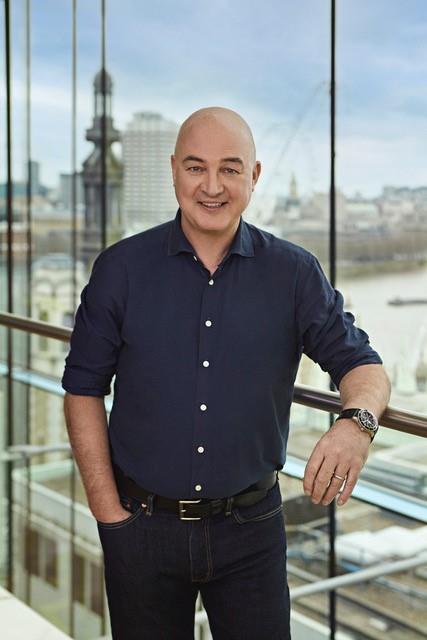
Name: Alan Jope
Place of birth: Glasgow
Lives: Edinburgh, London, and Connecticut
Age: 61
Family: Married with three grown-up kids
Potted CV: Grew up in Glasgow; drove a butchers’ van for a while; University in Edinburgh; needed a job and joined Unilever. I had 38 years there: 11 in the UK; 14 in the US; and 13 in Asia
Career highlight: Living and working in so many wonderful cultures and countries
Business motto: Look after your people and they will look after the business
Hobbies: Rugby, football, golf and adventure travel
Most memorable adventure: Trekking in Bhutan 30 years ago
Item you couldn’t live without: Tabasco
Favourite Magnum flavour: Double Gold Caramel Billionaire
The regulation is set to affect British companies doing businesses in or via the bloc too, and Jope points out the industry’s “good actors” want these laws: “Companies like Sainsbury’s, Tesco, Unilever and Nestle are doing great work and don’t want this legislation to be postponed because it levels the playing field for everyone”.
But with approximately 50 million people still trapped in the modern slavery cycle, is the UN’s goal of eradicating these practices by 2030 even remotely attainable?
“What’s the alternative?”, he quips. “The goal is to reverse and ultimately eradicate slavery and I really believe tougher laws and action by business could have a massive impact. Gosh, if we impact one life, it’s already worth it. So it’s not so much the target, it’s the standard.”
A passionate advocate
It is clear Jope is still extremely passionate about the industry he officially left only two years ago, when he retired after five years at the helm of Unilever – and another 30 leading different departments around the globe. During his tenure, he was known as a keen advocate for sustainability and an industry leader in the race against the climate crisis.
“Naturally an optimistic”, Jope admits he is not so optimistic about the climate emergency any longer: “It’s an enormous problem. We are passing tipping point after tipping point.”
A recent report by the UK’s Climate Change Committee confirmed the gravity of the situation: with about 50% of top-quality agricultural land now at risk of flooding, Britain is vastly underprepared for the impacts of climate change, the advisors warned, with severe impacts for domestic food production.
“This can only be solved with the power of government, the action of business, the innovative capability of academia and the morality of civil society all working together to solve this problem”, Jope says. He believes “we’re not moving fast enough and we’re going in the wrong direction.”
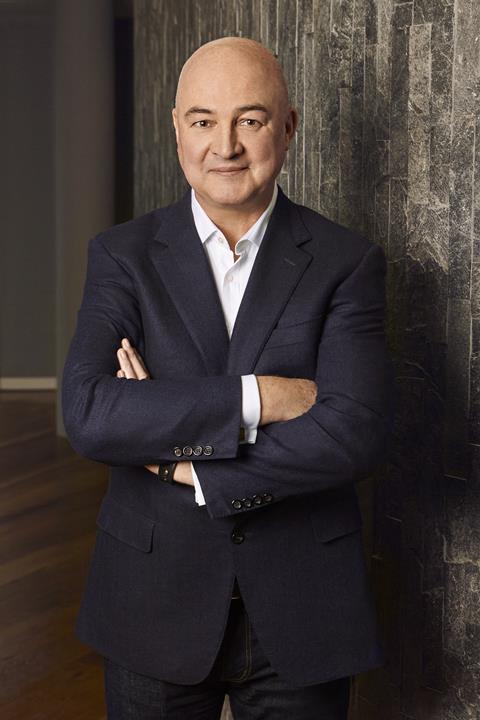
He is certainly not alone in this belief. Last month, a leaked memo authored by a group of anonymous UK food industry executives claimed companies were failing to act upon the climate crisis, and crucially, underselling the scale of the impact of global warming on the sector’s future resilience to their investors.
But are CEOs truly ignoring the climate threat? Jope thinks the “broad brush approach is unhelpful”, as there are plenty of chief execs “who are pushing the limits and trying to figure out how it makes better business sense to be on the leading edge” of the climate fight. “Of course, there will be some companies that are going too slow and there’ll be a few companies who are still run by climate change deniers”, he concedes.
But the CEO community is largely “a group of very hard working, very highly principled, very caring leaders of businesses”, he says, so he is bothered by “a few bad actors tarnishing [its] reputation”.
Unilever under the microscope
It’s worth noting Jope’s own former employer has been under scrutiny in recent years for an alleged shift in culture, with claims there has been a de-prioritisation of sustainability at the core of its strategy.
Only two weeks ago, Unilever’s leadership team was grilled at the latest AGM following the anonymous memo’s publication, with campaign group ShareAction quizzing it over its resilience planning and food supply chain management.
The fmcg titan has also faced heavy criticism for reportedly scaling down on a range of ESG issues under the leadership of Jope’s successor Hein Schumacher, including changing a previous goal to reduce use of virgin plastics by 50% by 2025 to a 30% cut by 2026.
And it didn’t help that Unilever spent the whole of last year being investigated by the CMA over its green claims on an array of household products.
Jope insists he doesn’t speak for the company any longer, but vehemently refutes this media portrayal: “I can assure you that Unilever remains profoundly committed to its sustainability goals.” He explains “there was a very small adjustment to one plastic target because probably we had overreached”, and thinks that having more focused goals “is a good thing”.
“If management tried to reduce Unilever’s commitment to sustainability, they’d have a revolution”, he states. “There’s a whole generation of people who joined the company, including the board by the way, because they wanted to be part of a progressive company.”
When asked if he worries that his own reputation might have been stained by the narrative that Unilever’s been slacking in regards to its eco-ethos, Jope means it when he says: “I don’t really care about my own reputation.”
He feels confident in the fact that he did a “decent job” in succeeding Paul Polman – credited with resurrecting sustainability as being strategically important to the company – and embedding this across the whole organisation “so that everyone understood what our priorities were and was working on it”.
Indeed, “the growing engagement scores with the people in the company”, who have grown to “understand the mission and feel very proud of it”, remains his fondest achievement from his time as CEO.
More Big Interviews:
-
Russell Bisset: how Northern Monk is keeping the faith
-
Freja bone broth founders: ‘the stock cube deserves to be killed’
-
How Simon Duffy hopes to make Waken ‘the next Colgate’
-
Iceland Foods CEO Tarsem Dhaliwal on keeping it in the family
But Schumacher’s sudden departure, announced earlier this year after less than two years in the role, raised questions over whether Unilever had strayed too far from its principles in the pursuit of bottom line growth.
Jope insists that “the organisation evolution of Unilever should never stop” and that “Hein [Schumacher] did a really great job – you can see it in the performance of the business and in the share price.” Jope is convinced the new leader, longtime employee and ex-CFO Fernando Hernandez – who Jope himself “put on the Unilever exec as a young talent” – “is going to do just great”.
Or at least he hopes so – “I still hold a lot of Unilever shares”, he laughs.
Fighting slavery and poverty
Besides that, he’s “moved on” and has lots going on. In addition to his modern slavery commission and retail charity work, Jope is also on the board of the Global Energy Alliance, an organisation fighting energy poverty, as well as on the board of information technology services and management consulting giant Accenture.
The latter should be enough to keep him flat out in the context of Donald Trump’s trade strategy and the emerging global tariff war, which is proving “extraordinarily difficult for businesses to navigate”, he says, with “the level of uncertainty right now across all sectors as high or higher than in the early stages of the pandemic”.
“What we’re going to see is a massive reemphasis on something that’s started during Covid, with businesses organising their supply chains for maximum resilience rather than lowest global cost”, he argues. “Will we then end up with British brands in Britain and Spanish brands in Spain and Portuguese brands in Portugal? I don’t think so.”
Jope acknowledges the challenges faced by British fmcg brands trying to make it in the US and other international markets amidst such uncertainty and cost-prohibitive levels of regulation. But he believes there is still opportunities for those who want to grab them. And if there is one thing he’s learned from his time at one of the world’s largest multinationals, it is that “expanding a brand into a new country is the same as launching a new brand” and that it is “impossible to over-invest in understanding consumer insights”.
He gives a nod to fellow compatriots and major exporting success story, Scottish brand Walker’s Shortbread, who have just won the International Business of the Year at the inaugural British Business Awards, which Jope chaired.
Unironically, the charismatic business icon claims to be amazed by how much free time one has “when you don’t have a full-time executive job”.
But between his adventures around the world on the back of a motorbike to his still deep engagement with all sorts of matters affecting the fmcg industry, one has to wonder if Jope is left with any time to sleep.







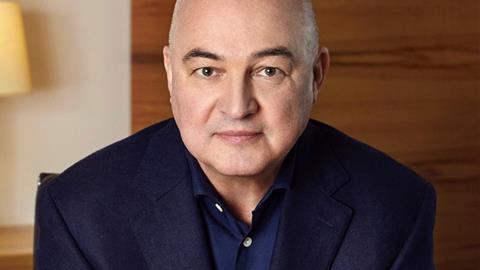






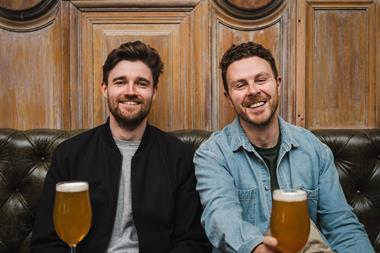
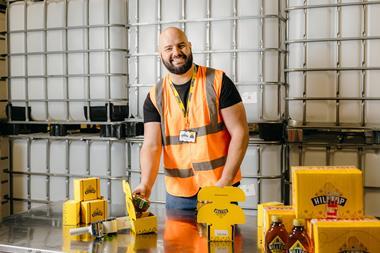
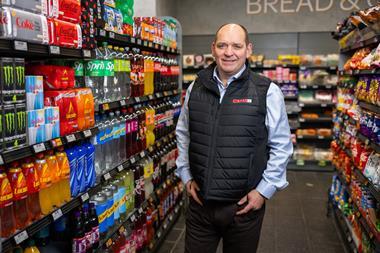
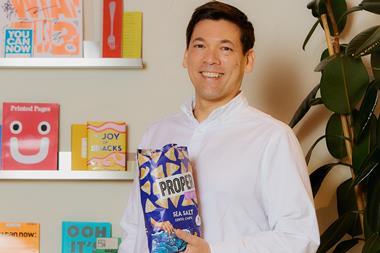
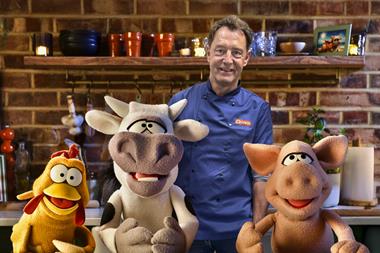
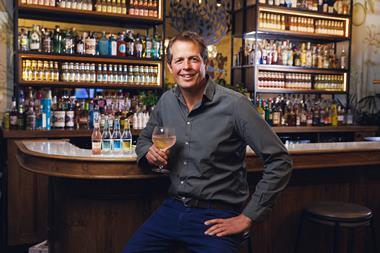
No comments yet